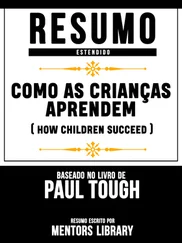In the publishing industry, proofreading is usually defined as checking a proof copy of a document for publication, for example a brochure or magazine article that has already been laid out and is ready to be sent to print. In the translation industry, proofreading and editing are often used interchangeably, to mean revising a bilingual text. If a client hires you to “edit” or “proofread” a text, make sure to clarify whether the client wants you to revise the translation using both the source and target documents, or simply proof the target document for target language errors.
Especially if you are a native speaker of a language other than English, voiceover work is an additional service you may want to offer. Voiceover work can take various forms. Your voice might be used to dub the voice of another person (for example in a television news broadcast) or on its own (for example as the voice track of an advertisement, or as the voice prompts for a phone system). Some voiceover work may even require people who speak English with a specific foreign language accent. Unless you do enough voiceover work that you want to invest in a home studio, you will probably be working at a professional recording studio. Voiceover work is normally paid by the hour and is handled both by translation agencies and by dedicated voiceover companies.
Transcription, which involves making a written transcript of an audio (or sometimes video) recording, is another service that can be done from a home office. Although transcription work may not pay as much as translation, there is a strong market for transcription in English and in other languages. Some translators also offer “on the fly” transcription/translation, where the translator listens to an audio recording and instead of making a transcript in the source language, translates while listening to the audio. If you would like to offer transcription services and you will be working from an electronic file (as opposed to a CD or tape), it is helpful to have specialized playback software that allows you to control the audio file from your keyboard or using foot pedals.
3.6.6 On-site document review
Some translation clients, such as law firms, financial services companies, etc. may have cases or business dealings that require them to review large volumes of non-English documents in a short period of time. In these situations, on-site document review, where you as the translator would to go the client’s office and summarize, either verbally or in writing, the content of those documents, can result in dramatic time and cost savings for these clients. After you have identified the general subject matter or content of the documents, the client can then decide which documents, if any, need to be translated. This type of work is normally billed by the hour; large corporations in major cities are probably the best potential clients for on-site document review.
3.6.7 Machine translation post-editing
Machine translation, translation that is done entirely by a computer, is becoming an increasingly important factor in the translation industry. Most people in the translation industry agree that the demand for the type of high-quality translation that human translators produce will always be greater than the supply of qualified human translators, so machine translation is not likely to replace human translators anytime soon. However, human translators are sometimes hired to post-edit machine translations, meaning that the translation is first done by a computer, then corrected by a human translator. This type of work can be paid by the word or by the hour.
3.6.8 Software Localization
An additional sub-specialty within the translation and localization industry is software localization, the process of translating software user interfaces from one language to another. For example, when a large software company produces multilingual versions of its applications, every piece of text displayed by the software must be translated into the target language, and in many cases the graphics must be altered as well. Software localization involves both bilingual software developers and document translators specialized in information technology, since the software’s user interface, help files, readme files, screen shots and incidental files (such as warranty information and packaging) must all be translated.
Software localization is an enormous industry in its own right, largely because computer users throughout the world now expect their software to be in their own language, and will naturally be more interested in purchasing software or visiting websites that they can access in their own language. Therefore, the software localization industry is a source of a large amount of work for bilingual software developers and for translators, and is currently one of the fastest-growing sectors within the translation industry as a whole. In addition, localization breeds localization; a localized web browser automatically creates a need for localized websites; a localized piece of software demands a localized manual to go with it. A useful resource for localization professionals is the Globalization and Localization Association gala-global.org. Software localization is often completed using different tools than those that are used for document translation; some computerassisted translation tools can cross over between these two types of translation, and some cannot. So, it is important to investigate what tools will be required if you would like to look for software localization work.
3.7 Who do translators work for?
3.7.1 Working for translation agencies
Freelance translators have two general categories of clients: translation agencies and direct clients. First, let’s look at how translators work through agencies. A translation agency, which may also refer to itself as a localization agency, translation company, or translation bureau, serves as an intermediary between freelance translators and end clients who need translations. The agency handles the administrative aspects of the translation project, interacts directly with the translation client and (hopefully) pays the translator and deals with any collections issues. Ideally, the translation agency should pay its freelance translators when their invoices come due (normally 30 days after the agency accepts the translation) whether the agency has been paid by the end client or not.
A translation agency is not an employment agency, and there is no fee involved for a translator to register with an agency. Translation agencies earn money by taking a percentage (possibly up to 50%) of what the end client pays for the translation. Freelance translators are often required to sign a confidentiality and non-competition agreement which states that they may not work directly for any of the agency’s clients for some period of time, and that they may not disclose information about the agency’s clients or projects. Like translators themselves, translation agencies can be either very general, “all languages, all subjects,” or highly specialized, for instance translating only for the medical industry, or only translating between English and Korean.
In the unpredictable world of freelancing, translation agencies provide some measure of job security. When you work for an agency, you don’t normally have to communicate with the end client directly, and in many cases the agency may even forbid you from contacting the end client. Instead, you translate the documents that the agency sends you, which means that you spend your time working instead of managing the project and handling the client’s questions. Also, an agency that becomes a regular client may be able to provide you with steady work, and will often pay you even if the client is late in paying them. A good agency project manager understands the nature of translation work and can save translators a lot of time by handling questions that need to be sent to the end client or by making decisions about style and formatting issues. Many of the best agency project managers are or have been translators themselves. Agencies also provide some amount of protection for you as the translator. If you get sick in the middle of a project or find that you’ve accepted work that is beyond your scope of expertise, the agency may be able to find another translator to replace you. When you work with direct clients, you generally have to handle these types of issues yourself.
Читать дальше
![Коринн МакКей How to Succeed as a Freelance Translator [calibre 3.46.0] обложка книги](/books/402693/korinn-makkej-how-to-succeed-as-a-freelance-transl-cover.webp)


![Джон Ирвинг - Našlė vieneriems metams [calibre]](/books/384320/dzhon-irving-naŠle-vieneriems-metams-calibre-thumb.webp)
![Джонатан Димблби - Barbarossa - How Hitler Lost the War [calibre]](/books/385421/dzhonatan-dimblbi-barbarossa-how-hitler-lost-the-w-thumb.webp)







